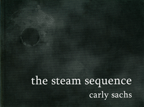I remember when my grandfather used to kid me about taking creative writing courses instead of math or biology classes. And then there was my father who wanted me to take more business courses. I didn't give in. I rounded out my English major with Poetry I and Poetry II. I graduated college and headed straight to NYC for my MFA in Creative Writing. And now, first book, and teaching creative writing at GW and then one of our colleagues from the English Department publishes this in Le Culte du Moi.
I agree that students need to be exposed to great writers---which I think most of us try to do in our classes. And through reading these "great" writers and asking our students to do immitation exercises, perhaps they will appreciate the struggle and choices writers constantly face with language. I myself often struggle with finding a "how to" method that will resonate the most with students, but what I have come to find out is how important it is for each writer, each student to understand their own "practice" of writing and how important it is for them to look at every piece of writing with a "how to" persepctive. How does this author create dynamic characters? How does this poet use rhyme to make her verse more modern? I often find myself teaching writers from a diverse a background as possible, not just the greats, but helping my students find greatness (or something else---as we can learn from everything) in all types of writing---including their own.
Students usually tell me that peer review and class critique is one of the most helpful aspects of my class. One student even told me she liked the work of her peers better than some of the authors we read. I remember in college when my favorite writers were my peers. I liked nothing better than going to Open Mic Night at the Brady, and no, it probably wasn't the best writing, but it was ours.
What Professor Soltan has failed to acknowledge is the importance of this type of environment that encourages students to connect with each other, and honestly engage in the process of writing (and yes, a bit of self discovery) promotes interest in the more "serious" writing courses, that our students become more active readers while becoming better writers.
After returning from the student open mic tonight, I'm reminded of the good work that we do. The work read by our students was very impressive. And as a writer, I know that this is something that cannot be quantified or qualified.
Subscribe to:
Post Comments (Atom)


1 comment:
I enjoyed your post! As an adult student pursuing my BA in Creative Writing, your insight on what student's should learn, what they take away from the experience was great!
http://pmhopkins.blogspot.com
Post a Comment